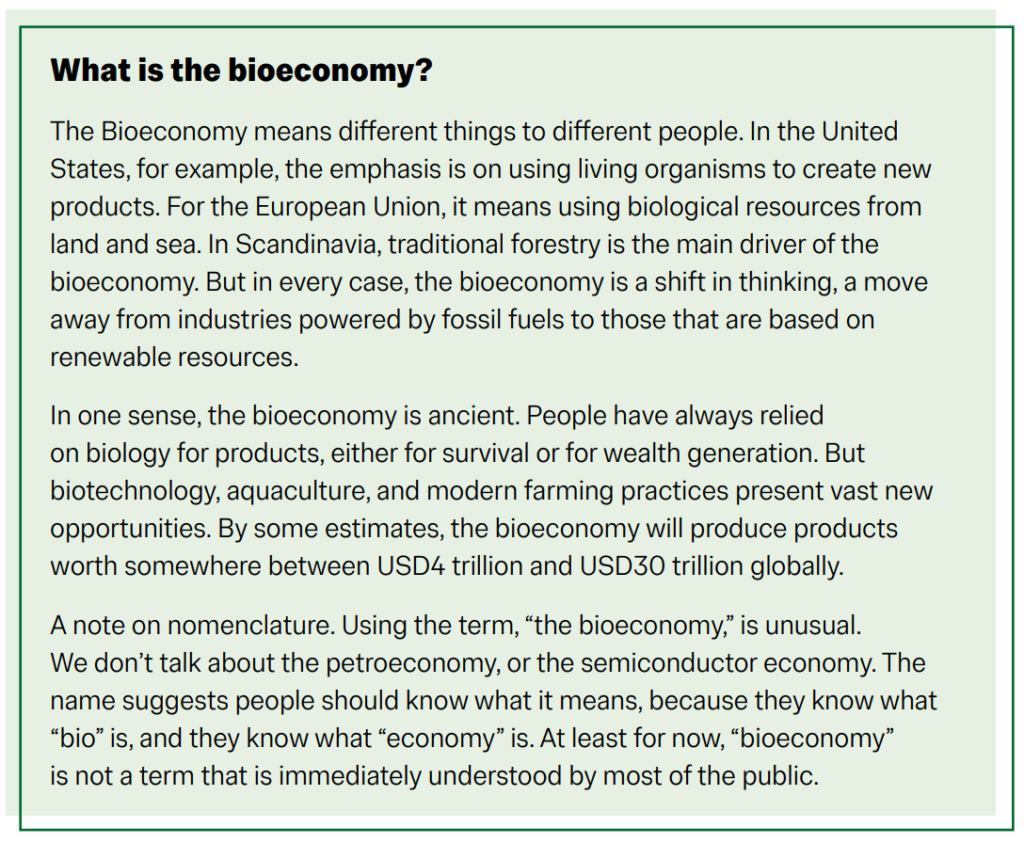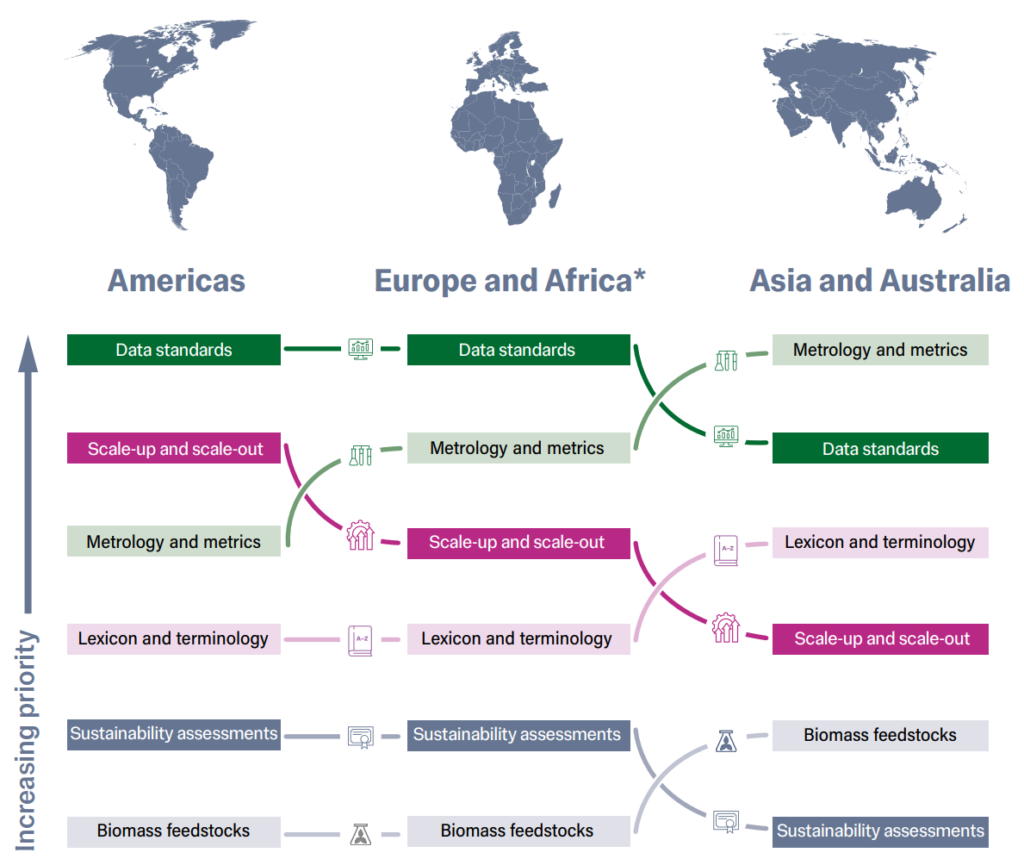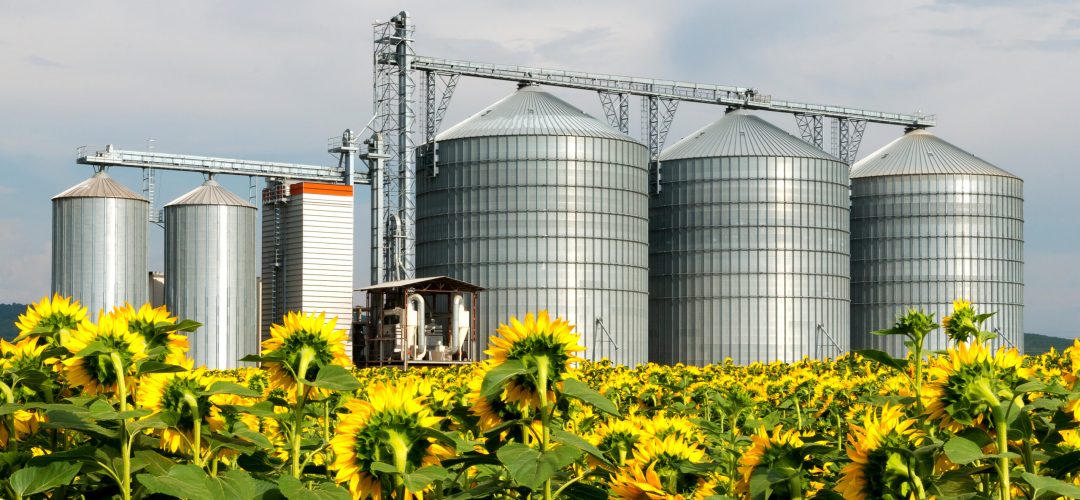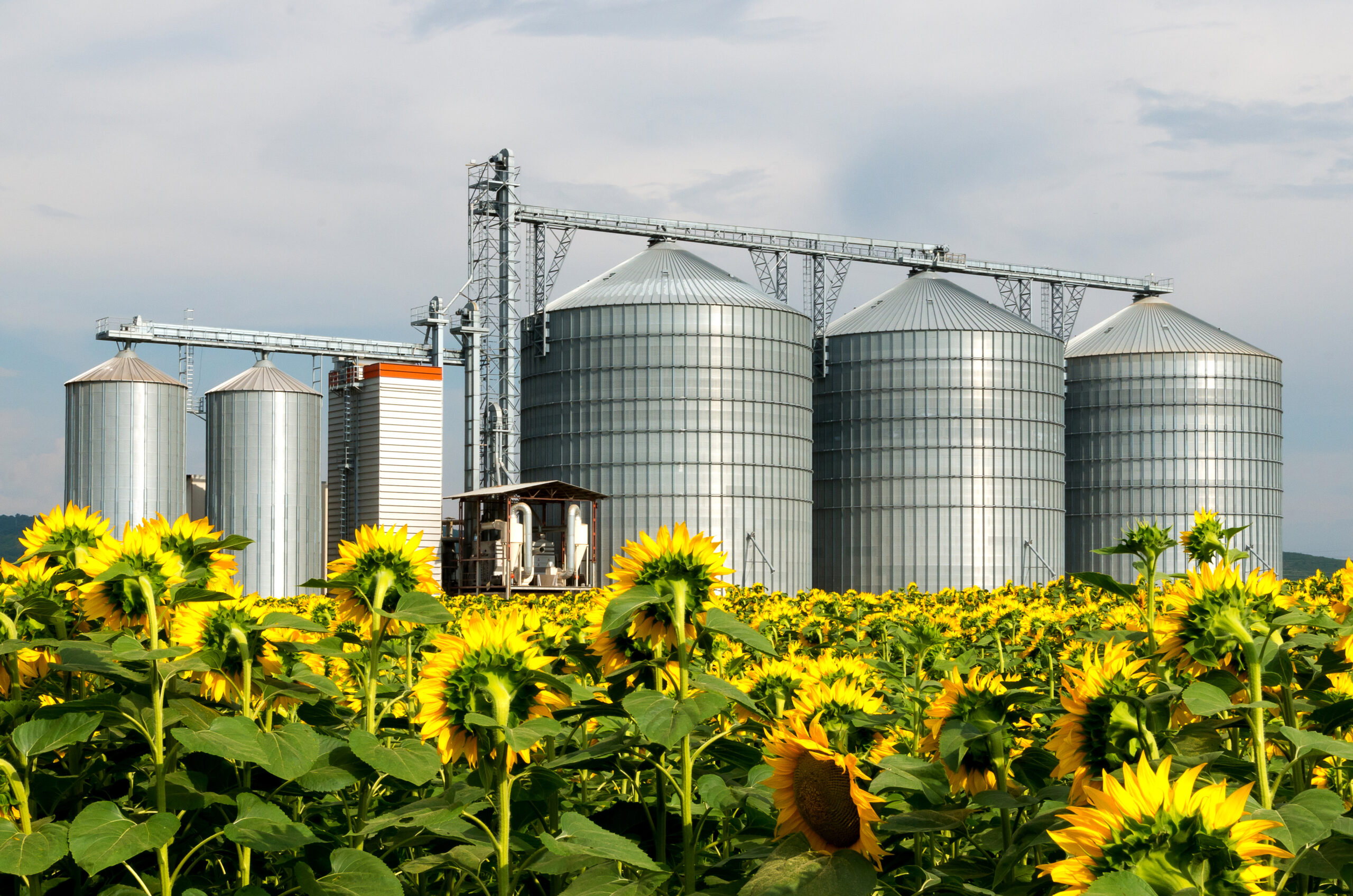A new report highlights the ten key areas recommended for standards and metrics development to enable the acceleration of the global bioeconomy.
The report, entitled ‘Engineering Biology Metrics and Technical Standards for the Global Bioeconomy’ received contributions from AcumenIST Dr Steffi Friedrichs, who was part of a group of experts, setting the scene for the European context during the regional ‘Europe & Africa’-workshop (held on the 25. – 27. September 2023 in Brussels).
The Problem: no Definition, no Standards, but many Policies
There is currently no internationally agreed definition of the bioeconomy. In the context of this report, we refer to the bioeconomy as encompassing the production, utilization, and conservation of biological resources in the pursuit of developing new products, processes, and services that will contribute
towards a more sustainable and circular economy. Across the world, at least 50 countries have published national bioeconomy strategies or are implementing policies that work towards a more sustainable bioeconomy. In many countries, regional strategies are also implemented. The bioeconomy interlinks the natural ecosystems (terrestrial and aquatic) with all sectors that use the resources they provide, such as agriculture, forestry, energy, fisheries, and aquaculture.

The Approach of a Solution: 3 dedicated regional Expert Workshops in the Americas, Europe + Africa, and Asia
The Task Force on Engineering Biology Metrics and Technical Standards for the Global Bioeconomy was convened with experts from the US, Europe, and Asia, with the aim of identifying appropriate technical standards and metrics that will better enable continued scale-up and enhance performance across the bioeconomy. By assessing regional priorities, the program seeks to identify key areas where setting open, voluntary standards will directly address these issues and support scale-up and innovation.
This international collaboration was jointly coordinated by Imperial College London, the Engineering Biology Research Consortium (EBRC), the National Institute of Standards and Technology (NIST), and the
National University of Singapore (NUS). A series of regional stakeholder discussions was convened to better understand the current state of the global bioeconomy, and to learn about the potential for standards and metrics to promote innovation and commercialization within each region. Where possible,
specific areas for development, both technical and non-technical, were identified and discussed, and recommendations were developed.
Three workshops took place: one in Washington DC suburbs for stakeholders from the Americas; one in Singapore for stakeholders across Asia and Australia; and finally in Brussels, for stakeholders from Europe and Africa.
Discussions that took place within each region, including during group plenaries and deeper-dive breakout sessions, were captured by the Task Force and summarized within workshop reports.
The content of each report was kept deliberately confidential until all three meetings had concluded, to avoid biasing any discussions with outcomes from another region. This report summarizes the key areas that emerged from those stakeholder discussions, pulling together common themes and identified needs
that arose across the regions. The content was drafted in collaboration with stakeholders and peer-reviewed by workshop participants.
Areas of common understanding were developed into key recommendations. These are:
- Data standards
- Metrology and metrics to quantify biological processes
- Scale-up and scale-out
- Lexicon and terminology
- Metrics and standardization for sustainability assessments
- Standards to enable use of biomass feedstocks
Within these six key areas, opportunities are identified for focused activities to develop technical standards and metrics that will enable enhanced performance across the bioeconomy: improving reproducibility, supporting continued scale-up, and accelerating commercialization and industrial growth. Their ordering reflects the predominant priority order across stakeholders; however within each region
different pictures of priority emerged. This reflects the varying state of the bioeconomy, partly due to engineering biology technology readiness, and the different challenges and opportunities to be addressed globally.
The ordering of these key areas reflects the predominant priority order across stakeholders, informed via a post-workshop survey inviting workshop participants to identify the priority order relevant to their region. The results of this survey highlight the variation in standardization priorities across the regions. Drivers behind these differing perspectives are discussed within each respective section of the report and feed into the overall findings and recommendations.

A series of non-technical areas are also identified and explored, reflecting stakeholder discussions. In some instances, these areas are deemed essential to support the implementation of technical recommendations. Non-technical areas include:
- Training and education on standards and metrics
- Engagement with the public, and improvement of public perception and trust
- Regulatory clarity
- Biosafety and biosecurity
The four areas identified are each a complex convergence of technical, social, and policy considerations. They are considered by stakeholders as necessary for the successful and sustainable implementation of the six technical areas identified above. However, the focus of this project is on technical standards, and as such the Task Force has considered non-technical areas in lesser detail. This by no means denotes a lesser importance to non-technical areas, but rather reflects the mandate of this particular project.
Discussions around both technical and non-technical areas for development are underscored by regional and cultural differences. Public perception of the engineering biology sector, for example, differs greatly across countries and regions, as does the level of risk deemed acceptable by consumers, organizations,
and governments. There emerged a complex picture of the current landscape of key stakeholders and existing regulations around the world.
As well as focusing on areas of common understanding, the report elaborates on some areas where distinct differences exist and global consensus might not be reached, highlighting these as potential focus areas for regional or national efforts going forward.
Follow this lonk to download the full report ‘Engineering Biology Metrics and Technical Standards for the Global Bioeconomy’.








